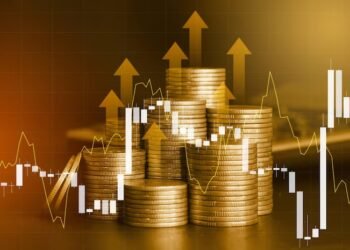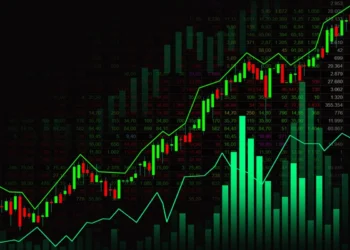Stocks marched broadly higher after elections, briefly nudging trading activities up in value above the week prior to elections on the Ghana Stock Exchange (GSE).
The benchmark index notched a 34.1 percent gain to close the week at 1,854.32 points making a weekly return of 1.87 percent on the index and total market capitalization surged by 0.68 percent to GH¢53.46 billion from GH¢53.1 billion at the end of the previous week.
Year-to-date losses on GSE-Composite index (CI) reduced to negative 17.85 percent compared to week before election where it lingered around negative 19.36 percent. Market improvement was also largely influenced by the GSE-Financial Stock Index (FSI), which cut its year-to-date losses to negative 16.91 percent from negative 19.65 percent.
Trading activity strengthened in value terms as 25.51 million shares valued at GH¢60.5 million improved compared with 37.59 million shares valued at GH¢23.2 million the previous week.
Ecobank Ghana stocks led the higher way becoming top gainers and value leaders gaining 0.49 to hit price of 5.99 making a total value of GHS611,600 by the end of the week. Guinness Ghana Breweries limited also had a strong showing attaining feat of volume leader with 103200 at price of GHS 0.9.
It is anticipated that trading activity is going to continue to surge until the end of the year which will further increase investor confidence in the final weeks of 2020. The Ghana stock market is on the edge of erasing the last of the losses taken after the coronavirus pandemic crushed the economy early March this year affecting the livelihood of individuals and businesses.
Despite the improvement, however, the economy is still hobbling as we are yet to attain pre-pandemic levels.
Much of the rebound has been due to monetary easing from the Central Bank slashing interest rates by keeping monetary policy rate a 14.5 percent since March and propped up far-ranging corners of the bond market to keep the economy’s back up. The low interest rates mean investors are getting paid very little to own bonds, which pushes some into stocks boosting their prices.
“The market would have reacted otherwise if the elections could not produce a president. That would have been seen as some level of political instability,” said Kofi Bussia Kyei, an analyst at UMB Stockbrokers.
“Current post-electoral issues, such as the claims by the largest opposition party, are not affecting the performance of the market,” he added.
Another reason for such impressive outcome in the stock market is because “investors’ appetite for equity is fueled by the cheap valuations on the market” with about half the issuers totaling 16 in number are “trading at price/earnings multiples (PE’s) of 5 or below, and 20 issuers are trading at single digit PE’s”.

This means that investors are willing to pay less amount per Ghana cedi of earnings or can expect to invest less amount when trading in a company in order to receive one cedi of the company’s earnings.
The Ghana Fixed Income Market is enjoying far and away its biggest boom in its five-year history in terms of liquidity and trading volumes, which is the direct result of the positive long term yield curve developed over the past couple of years by the incumbent government’s successful issuance of cedi denominated bonds with tenors of up to 20 years.























